In 2011, the corner space on 4th Street in Downtown Santa Ana, where the Mexican restaurant Mariscos Tampico once stood, seemed a peculiar choice for a New American concept complete with a forward-thinking craft beer bar and a changing menu. But fresh off the heels of major food truck success as the chef behind local favorite (and winner of Food Network’s The Great Food Truck Race), The Lime Truck, that is where Jason Quinn dug his feet in and opened his very first restaurant, Playground.
Knowing his hands would be full with the kitchen, Quinn tapped Jarred Dooley, a beer expert from The Bruery in nearby Placentia, to be general manager, with the added responsibility of running Playground’s beverage program. When Dooley stopped by the future restaurant to consider the offer, the walls were painted floor to ceiling with murals of the ocean, and there was little in the way of a final business plan. Dooley left the visit convinced to stay put at The Bruery. And although he had every intention of turning him down, he agreed to join Quinn for a family-style dinner with friends. The chef’s charming sense of hospitality and spirited persistence changed his mind that night. Dooley soon joined Quinn’s start-up, and the two men put a fresh coat of red paint on the walls before opening in November of that year.
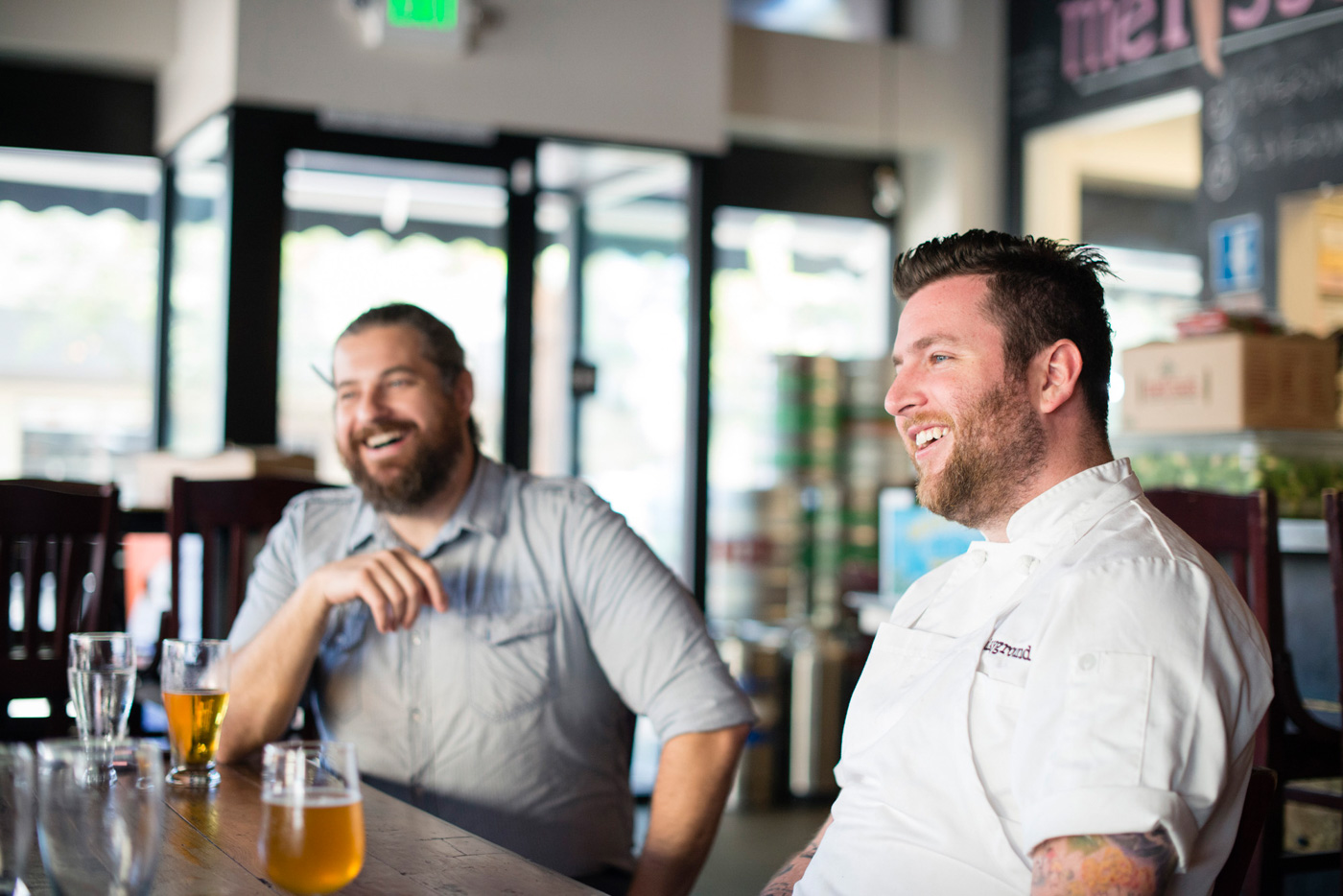
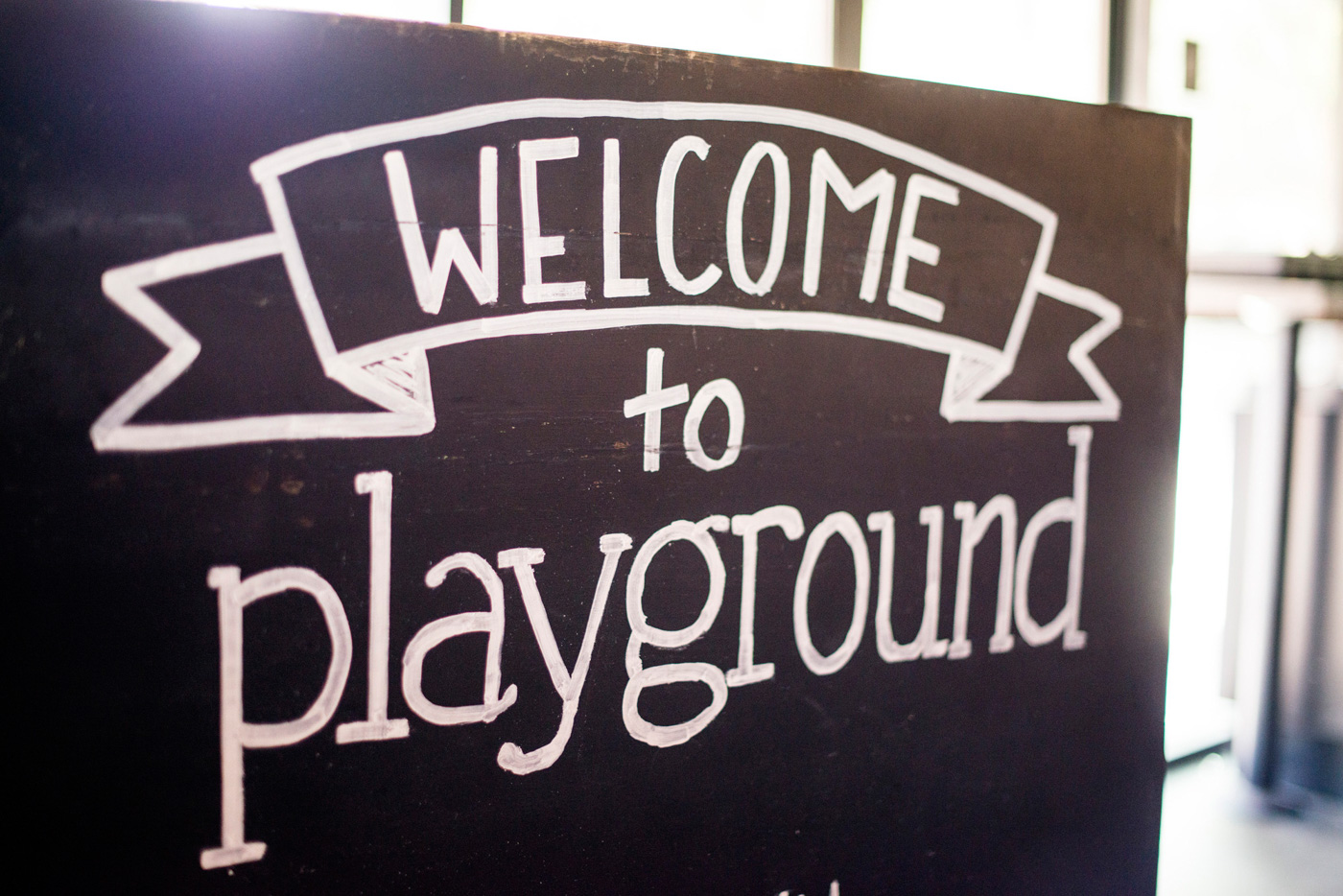
The first 18 months were solely focused on Playground DTSA (Downtown Santa Ana). As they worked to get the restaurant off the ground, they exercised the freedom to explore the boundaries of their menu. From fried chicken to five-course tasting menus with pairings, the team reworked offerings every few days—sometimes even daily. Naturally, their capriciousness opened them up to a greater probability of error. When—not if—their best-laid plans went awry, Quinn and Dooley evaluated their mistakes, dusted off their shoulders, and jumped right back in.
Just like that, a year and a half passed by. Always ready for a challenge, when they heard an adjacent space was becoming available, they acquired it to launch Playground “2.0.” It was an invitation-only offshoot of the original that offered a far more intimate culinary experience featuring a different chef each night. In year three, they unveiled Dough Exchange, a fully stocked bakery built around the ever-popular, made-to-order doughnuts at Playground, but also offering pastries, breads and other staples. Then, in 2015, the group underwent its biggest expansion, opening five of the 15 food stalls—essentially mini restaurants—inside the neighboring 4th Street Market, all in one day. Over four years, Quinn and Dooley developed a total of eight food concepts.
Today, albeit still a multi-unit restaurant group, the Playground team has tightened its operations. They’ve closed Dough Exchange, and pulled the plug on four of their five food stalls in the market. Along the way, Quinn and Dooley learned a few lessons the hard way, which they believe have ultimately served them well, each an opportunity to learn, to hone their strengths, and refine the execution of their ambitious ideas and eager spirits.
After savoring a taste of Playground-made milk punch, a Dooley-made experiment for the Playground cocktail menu, I sat down with the chef and his “director of libations.” Colored with cursing, sarcastic jabs at one another, and boyish smirks, they vigorously parse their successes and failures within and outside the four walls of their first restaurant.
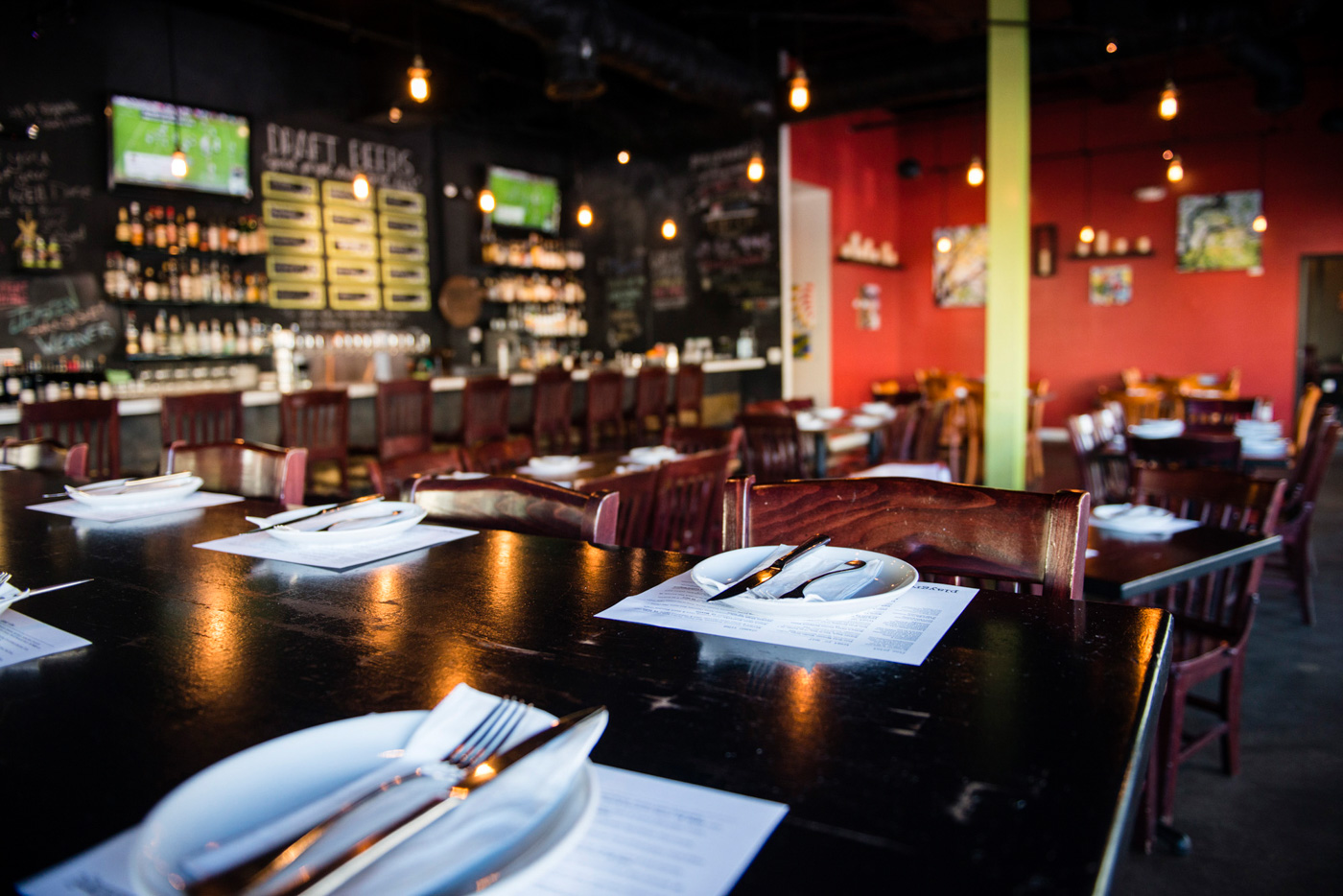
How did you convince Jarred to come on board?
Jason Quinn: Jarred already had a very sweet job. What I offered was, “You get to come in, and run your beer program.” Whatever you believe in, that’s the way I want to do it. I don’t want to restrict you. I still to this day have never told him he couldn’t buy a beer, or a wine, or a spirit.
Jarred Dooley: I think you told me no twice.
Quinn: What?
Dooley: Well, coupe glasses.
Quinn: Coupe glasses! I was going to get to glasses. But beers? No. Anyways, coupe glasses are the worst glasses. There was an Arsenal game on—I’m a big soccer fan. We needed to win. So I was like, “Jarred, let’s make a bet that we win.”
Dooley: If Arsenal wins, I get coupe glasses.
Quinn: We won, so he got his fucking coupe glasses.
Dooley: I had already bought them.
Like Playground, all of your businesses started here, on this short stretch of 4th Street. It’s clear you’re invested in the local community, and specifically Downtown Santa Ana. Was that always the plan for Playground and Santa Ana from the start?
Quinn: When I think back, I just wanted to survive. I didn’t have longevity plans at the time.
Dooley: It was never, “Okay, this is our two-, four-, six-, 10-year goals.” It was, “Hey, what’s happening in two hours?”
Quinn: Jarred wasn’t ready to be the general manager of a restaurant. I wasn’t ready to be the chef-owner of a restaurant. Nobody who joined was ready for their position. We all looked at each other, and were like, “We really have two choices here. We can act at our skill level and fail. Or, we can find something in us to be better than we deserve to be, and put in the hours, and put in the time, and maybe get lucky and survive.”
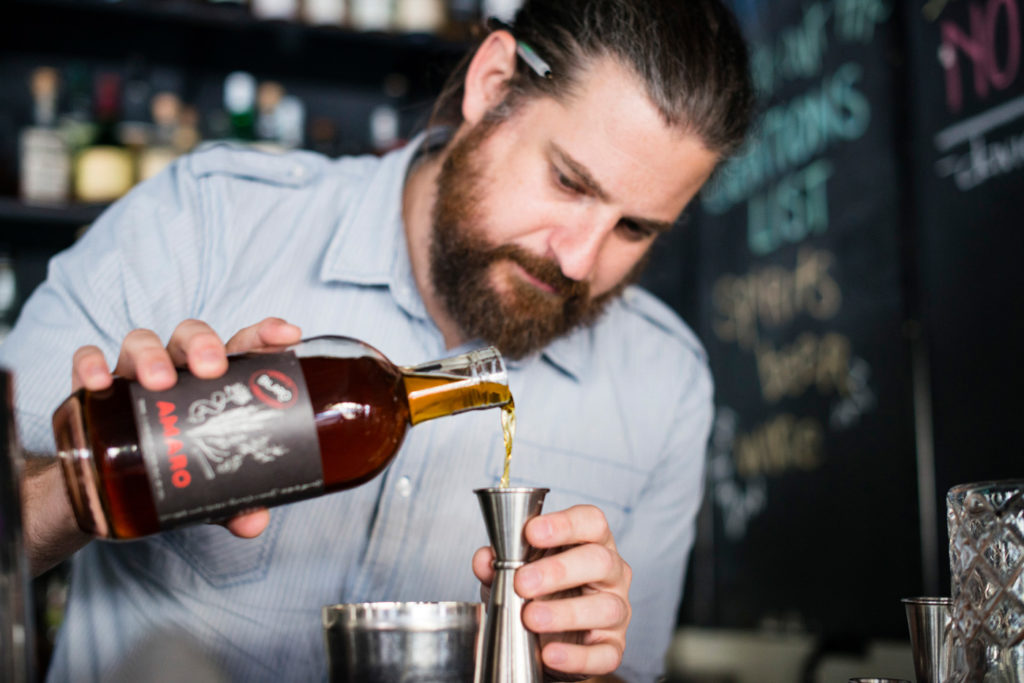
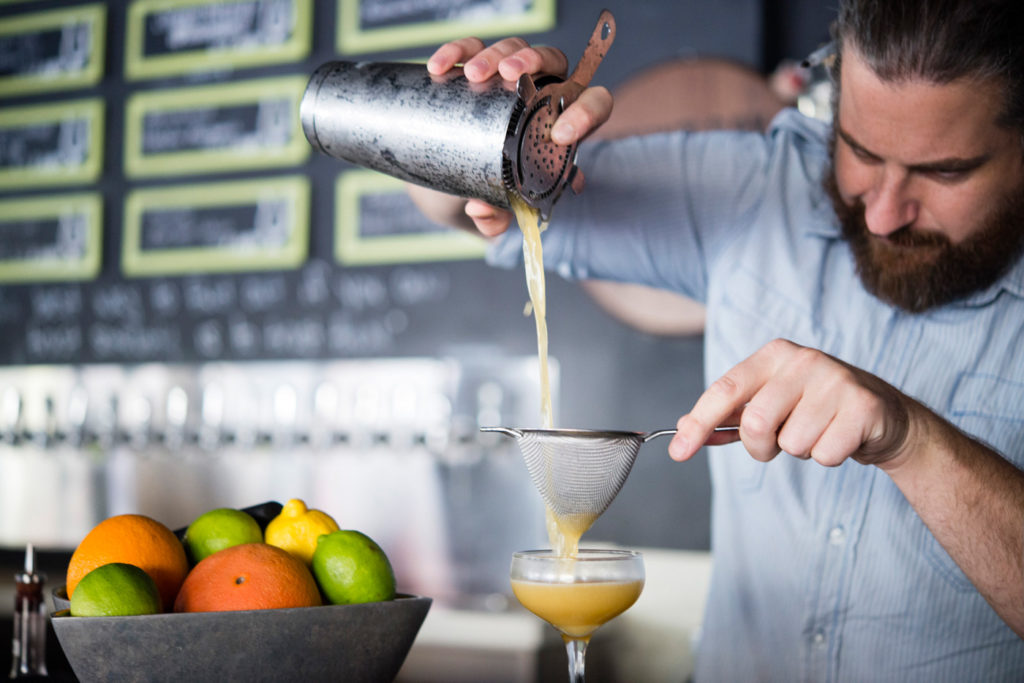
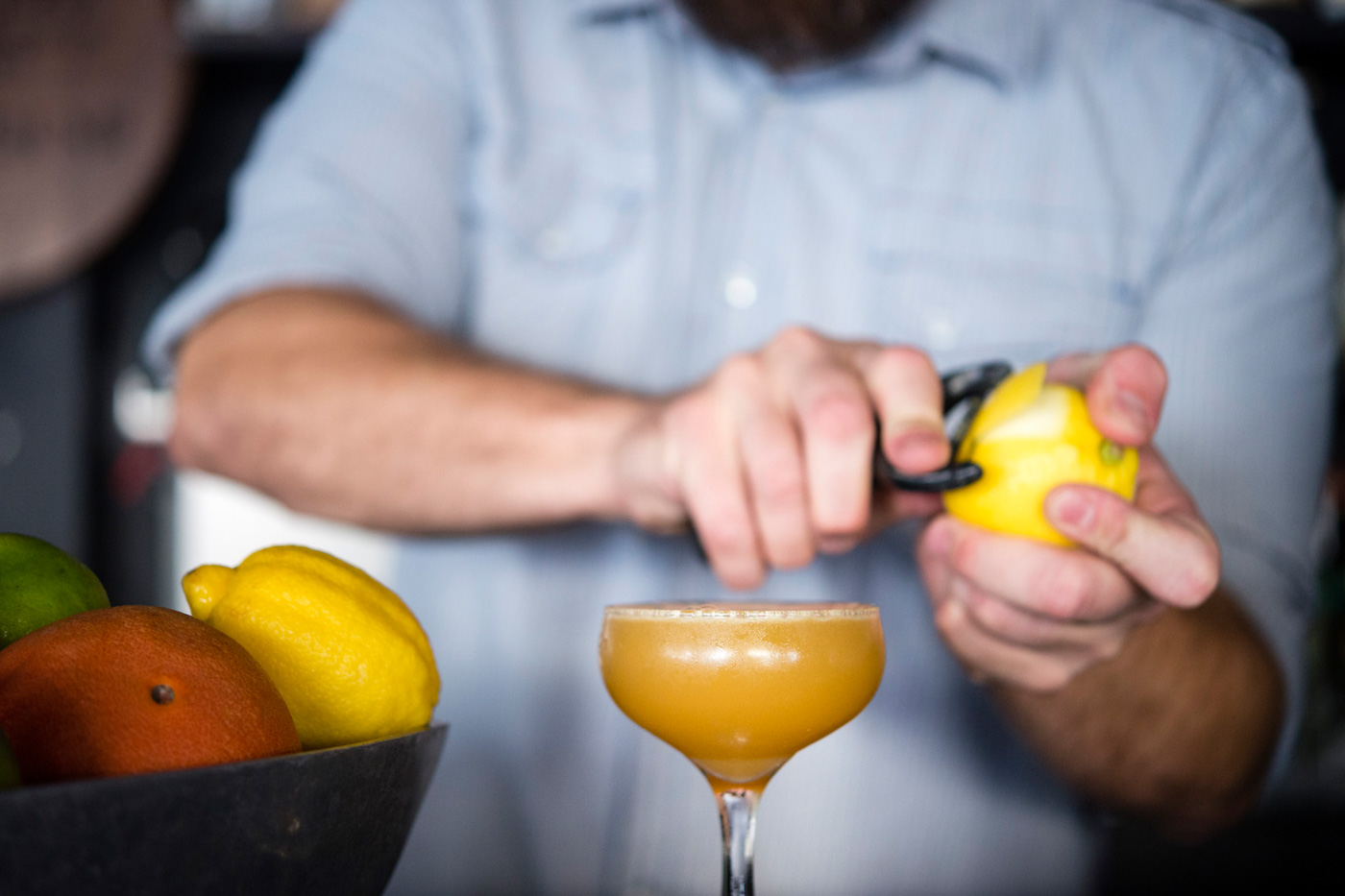
What’s the significance to the name Playground?
Quinn: The word playground really is what this place embodies. We come to work every single day and get to play around—with our friends, and really high quality ingredients, and new techniques, like milk punch.
Dooley: That’s an old technique.
Quinn: Well, I should say, things other people aren’t doing. For me, particularly in the food realm, let’s say we’re making a dish like fried chicken. Everyone’s had it, a hundred times maybe. But when you make something people have no comparison for, that’s how you find yourself in the spot where you’re creating a unique moment in this person’s life.
This idea of making everything from scratch and using the best ingredients worked really well for you at Playground. How did this carry over when you started Dough Exchange?
Quinn: So we’re sitting here living the dream. It’s all working. We get cocky. Everybody who was coming to our Sunday brunch was getting the doughnuts and saying, “These are the best doughnuts I’ve ever had.” So we’re thinking, “We need to open a doughnut shop.” They were fresh and warm and cooked to order; and the space was right here and it was cheap. Why not? We spent half of a million dollars to build this bakery, and it didn’t even last 10 months.
Dooley: One of the things we realized with those doughnuts, it’s one thing to have a doughnut out of a fryer, and have it be just magic. It’s another thing for that same doughnut to sit on a counter and get stale. It was a problem we never had to figure out.
Quinn: Because we had always cooked them to order over here.
Dooley: The first two minutes were…
Quinn: …religious-experience good.
Dooley: Ten minutes later, it’s still really good. And then, 20 minutes, it’s…
It’s just another doughnut?
Dooley: No, no. It was less than a doughnut.
Quinn: What kills me is, here we are, laminating our own dough with the sickest European butter. Literally, just doing it right, the way that you would want to eat it. But they’re costing us six dollars, and we’re selling them for five, and we weren’t willing to compromise our quality. We had a good hard look at ourselves. We tried for 10 months to expedite the process and not sacrifice quality, to get people to understand why it was this price, changed the menu, did everything we could. At the end of the day, it doesn’t matter how good it is. If people aren’t happy to pay for it, it’s not a good price. We learned that.
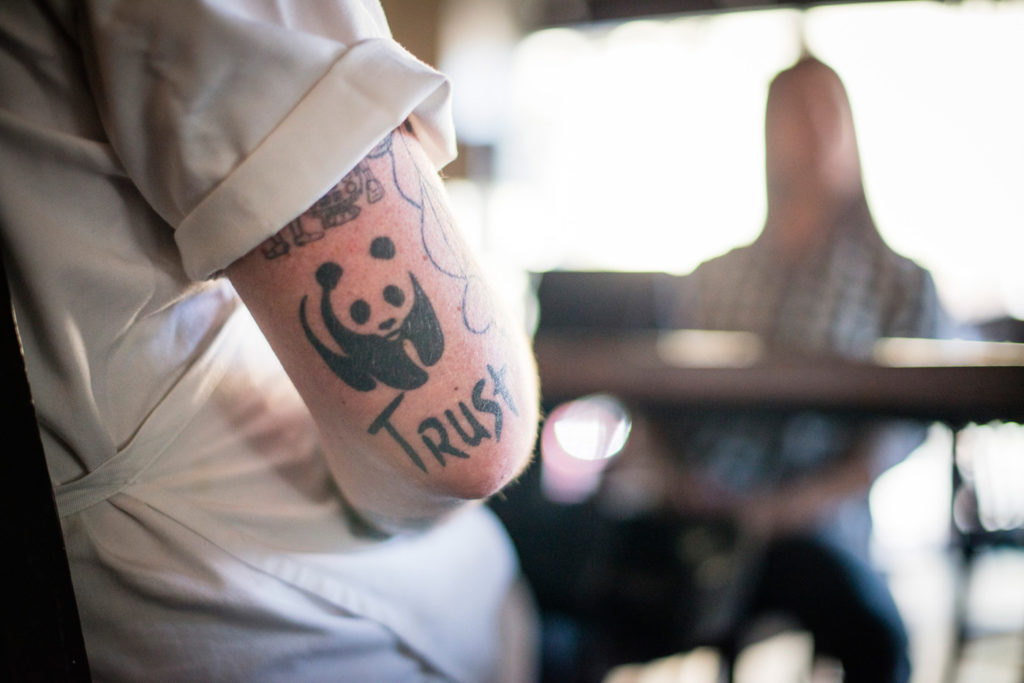
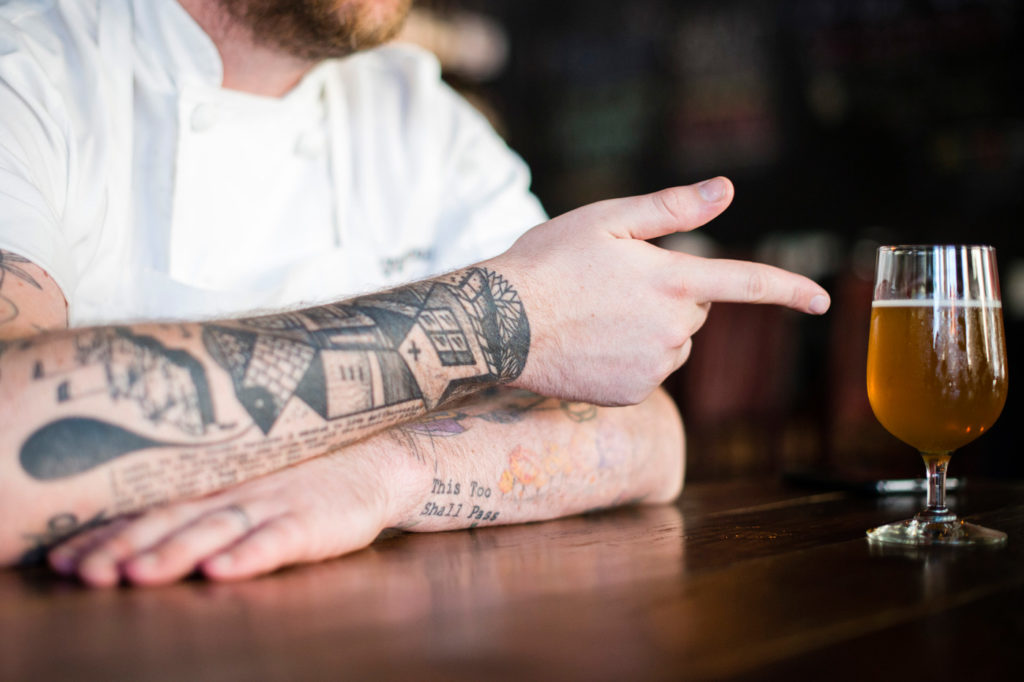
How did 4th Street Market become a part of your journey?
Quinn: We entered the 4th Street Market (with concepts Wagyu Chuck, Noodle Tramp and PFC—Playground Fried Chicken) because we had recipes we fell in love with. Keeping these recipes at Playground (khao soi, classic American burger, super high end burger, Playground fried chicken) was prohibiting because of our changing menu. We felt they could easily be a full meal, and therefore were the perfect fit for the market.
Why did you ultimately close them?
Quinn: We found it was a remarkably unsatisfying price point to be serving food at. We worked very hard to have our menu accessible but still of a very high quality. We were serving five ounces of 100% pure Wagyu beef on a house-made bun for $9 and getting lots of resistance to that price. That was a heartbreaking reality, especially because we weren’t making money on it.
Dooley: That year (2015) was massive expansion and collapse all in the same.
Quinn: Brutal. Brutal year. We realized as quickly as possible that this (pointing to the walls of the restaurant) is what we do well. This is where we are excelling in industry standards, and this is what we want to do.
Dooley: It was this tiny microcosm of the bubble bursting.
Quinn: We had this unbelievable hubris from our first year and a half to three years. It was just nothing but success across the board. People saying we’re geniuses and we can do no wrong. Enough people say it, and you start to believe it yourself.
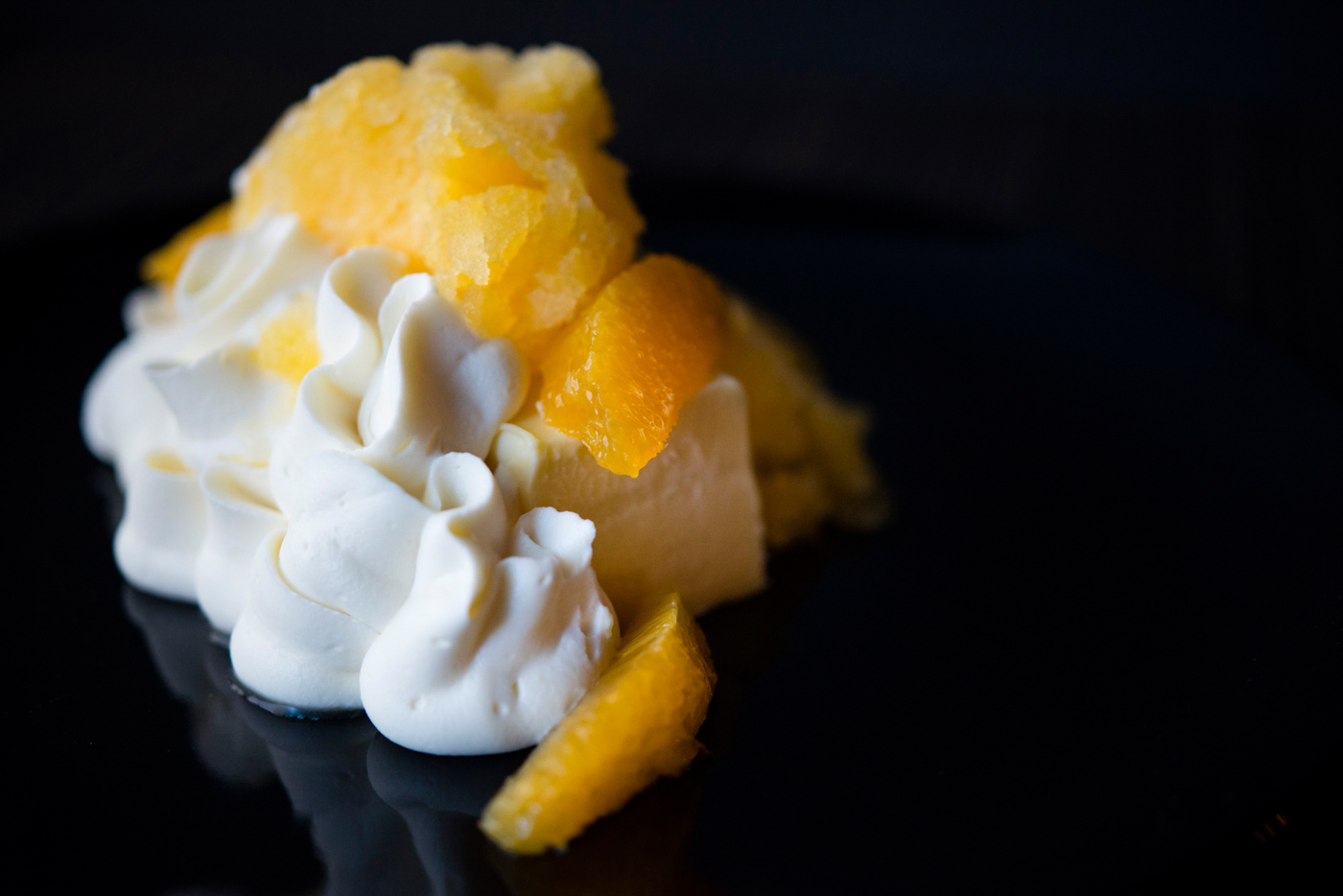
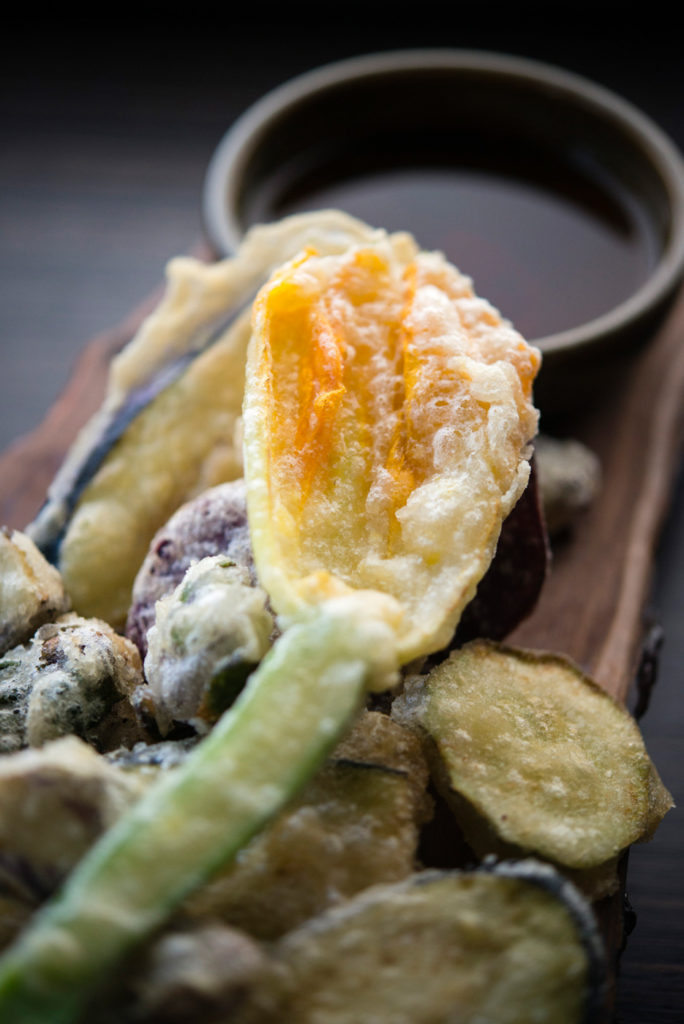

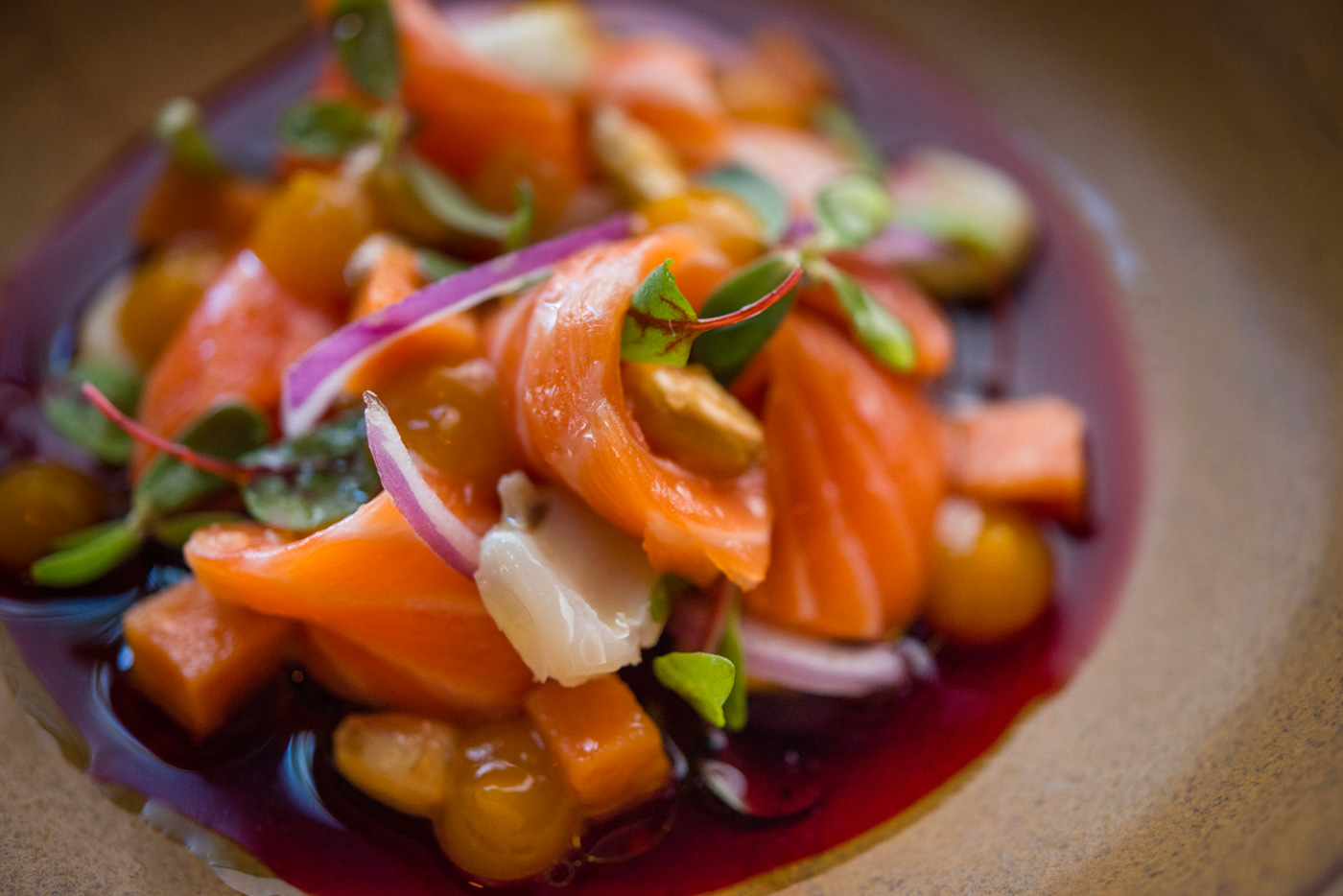
In light of creating and then walking away from several businesses in the past two years, what is your outlook on failure?
Quinn: It’s a remarkably satisfying life to know you were not afraid to do something the hard way. You were not afraid to put yourself on the line. You were not afraid to try to be great. That’s what we do. When I fail, I can look at myself in the mirror, and I can respect myself. Everything I’ve personally done is to get the best out of myself. When I cut corners, I know it as well, and I look at myself, and I respect myself less.
Dooley: There’s no fear of failure.
Quinn: No. We’re maybe a little more cautious now, but we’re not scared. We’ve closed stuff, and it’s not the end of the world.
In that case, what is success to you? How would you define it?
Quinn: We only sell a perfect experience. If you feel like your experience is flawed, we don’t feel like you should pay for it. Frankly, we feel like that’s how every restaurant should run. This is a pleasure business. If we did not hold up our end of the bargain in providing pleasure to you, what are you paying for? If the difference in the garage over there is that I have a Mercedes instead of a Mazda, that is not success. Whereas, people come expecting excellence and receive excellence—that is success. If we miss it, it is success to catch that in the act, and right our wrongs. We will always make mistakes. We’re going to fail. We’ve just got to catch it.

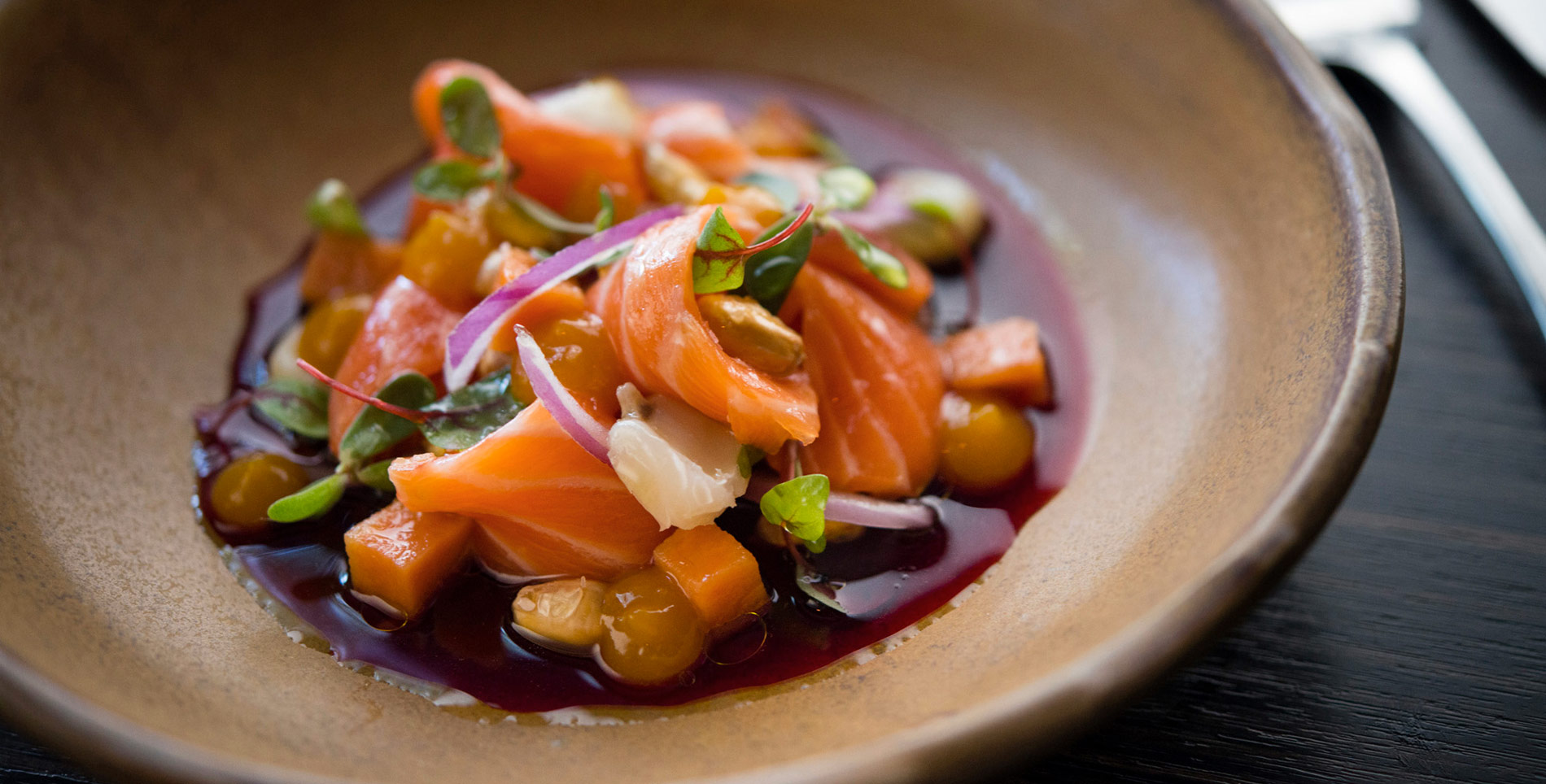

Our comments section is for members only.
Join today to gain exclusive access.